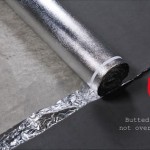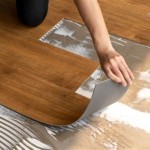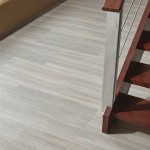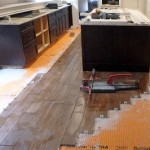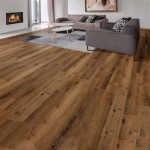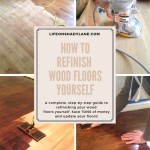Wood Flooring Cost for 2000 Sq Ft
Understanding the cost of installing wood flooring in a 2000 square foot space requires careful consideration of numerous factors. The ultimate price will vary substantially based on the type of wood, installation complexities, regional labor rates, and any necessary subfloor preparation. This article provides a comprehensive overview of the elements influencing wood flooring costs for a project of this scale, enabling a more informed budgeting process.
The initial and most significant determinant is the material itself. Wood flooring encompasses a broad spectrum, from affordable engineered options to premium solid hardwood. Each type carries a distinct price point, directly affecting the overall expenditure.
Engineered wood flooring, constructed from multiple layers with a hardwood veneer on top, generally presents a more budget-friendly alternative to solid hardwood. These floors are dimensionally stable, making them suitable for areas with fluctuating humidity levels. The cost per square foot for engineered wood flooring can range from $3 to $12, depending on the veneer thickness, core material, and surface finish.
Solid hardwood flooring, comprised of a single piece of wood, is a classic and highly sought-after choice. However, its price typically exceeds that of engineered wood, reflecting its higher material cost and the often more intricate installation processes. Expect to pay between $5 and $20 per square foot for solid hardwood, with exotic species and wider planks commanding even higher prices.
Beyond the primary material, the grade of the wood also influences the cost. Higher grades exhibit fewer knots and imperfections, leading to a cleaner and more uniform appearance. Lower grades, while more affordable, may contain more character variations, requiring careful consideration of the desired aesthetic.
Installation costs represent another substantial portion of the overall expense. Professional installation is highly recommended to ensure proper acclimation, precise fitting, and a durable, long-lasting floor. Labor rates vary regionally, but typically range from $3 to $8 per square foot. Complex installation patterns, such as herringbone or parquet, will increase labor costs due to the added time and skill required.
The existing subfloor's condition plays a crucial role in the installation process and associated costs. If the subfloor is uneven, damaged, or requires leveling, additional preparation will be necessary. Self-leveling compounds, plywood underlayment, or subfloor repairs will add to the overall project expense. A proper subfloor is vital for ensuring the stability and longevity of the new wood flooring.
Furthermore, the cost of removing existing flooring can impact the total project budget. Depending on the type of flooring being removed (e.g., carpet, tile, vinyl), the labor involved can range from simple removal to more complex demolition. Disposal fees for the removed materials also need to be factored in.
Additional expenses may include the cost of underlayment, which provides cushioning, sound insulation, and moisture protection. While not always mandatory, underlayment is often recommended, especially for engineered wood flooring installed over concrete subfloors. Expect to pay $0.50 to $2 per square foot for quality underlayment.
Baseboards and trim are essential for completing the wood flooring installation, providing a finished look and concealing the expansion gap between the flooring and the walls. The cost of baseboards and trim will depend on the material (e.g., wood, MDF), style, and the amount required. Installation labor for baseboards and trim should also be considered.
Finally, consider ongoing maintenance costs. Wood flooring requires regular cleaning and occasional refinishing to maintain its appearance and extend its lifespan. The cost of cleaning products, floor wax, and professional refinishing services should be factored into the long-term budget.
Key Factors Influencing Material Costs
The type of wood is the most significant determinant of material cost. Solid hardwood, particularly exotic species like Brazilian Cherry or Ipe, commands higher prices than domestic hardwoods like oak or maple. Engineered wood flooring, offering a balance of affordability and durability, falls between these two extremes. The thickness of the veneer layer on engineered wood also affects its price, with thicker veneers offering greater longevity and a more authentic hardwood appearance. The grade of the wood further influences the price, with higher grades exhibiting fewer imperfections. Width and length of planks also play a role, with wider and longer planks often priced higher due to their increased material and manufacturing costs. Selecting the appropriate wood type and grade depends on budget considerations, aesthetic preferences, and the intended use of the space.
Breaking Down Installation Expenses
Installation costs are primarily driven by labor rates, which vary depending on location and the complexity of the installation. Simple plank installations on a level subfloor are less expensive than intricate patterns or installations over uneven surfaces requiring extensive subfloor preparation. The experience and reputation of the installer also influence labor costs, with more experienced professionals typically charging higher rates. Removing existing flooring and disposing of the debris constitutes an additional installation expense. Subfloor preparation, including leveling, patching, or installing underlayment, can significantly add to the overall installation cost. Permits may be required for certain flooring installations, adding another layer of expense. Obtaining multiple quotes from qualified installers is crucial for comparing prices and ensuring a competitive rate.
Accounting for Additional Project Costs
Beyond the material and installation, several supplementary costs can impact the overall budget. Underlayment provides cushioning, sound insulation, and moisture protection, and its cost should be factored in. Baseboards and trim are essential for completing the installation, concealing expansion gaps and providing a finished look. Fasteners, adhesives, and other installation supplies contribute to the overall expense. Moving furniture and appliances out of the installation area and back in afterward may incur additional costs. The cost of renting any specialized equipment, such as floor sanders or nail guns, should also be considered if undertaking a DIY installation. Post-installation cleaning and sealing may be necessary to protect the new flooring and enhance its appearance. These additional costs, while seemingly minor individually, can collectively add up and significantly impact the total project budget.
To illustrate the potential cost range for a 2000 sq ft space, consider the following scenarios:
Scenario 1: Budget-Friendly Option
* Engineered wood flooring: $3/sq ft
* Installation: $3/sq ft
* Underlayment: $0.50/sq ft
* Baseboards and Trim: $1/sq ft
* Removal of existing flooring: $1/sq ft
Total: (2000 sq ft x $3) + (2000 sq ft x $3) + (2000 sq ft x $0.50) + (2000 sq ft x $1) + (2000 sq ft x $1) = $17,000
Scenario 2: Mid-Range Option
* Solid hardwood flooring: $8/sq ft
* Installation: $5/sq ft
* Underlayment: $1/sq ft
* Baseboards and Trim: $2/sq ft
* Removal of existing flooring: $2/sq ft
* Subfloor Preparation: $1/sq ft
Total: (2000 sq ft x $8) + (2000 sq ft x $5) + (2000 sq ft x $1) + (2000 sq ft x $2) + (2000 sq ft x $2) + (2000 sq ft x $1) = $38,000
Scenario 3: High-End Option
* Exotic solid hardwood flooring: $15/sq ft
* Complex pattern Installation: $8/sq ft
* Premium Underlayment: $2/sq ft
* Custom Baseboards and Trim: $4/sq ft
* Removal of existing flooring (difficult): $3/sq ft
* Extensive Subfloor Preparation/Leveling: $3/sq ft
Total: (2000 sq ft x $15) + (2000 sq ft x $8) + (2000 sq ft x $2) + (2000 sq ft x $4) + (2000 sq ft x $3) + (2000 sq ft x $3) = $70,000
These scenarios provide a general estimate, and actual costs may vary. Obtaining detailed quotes from local contractors and suppliers is recommended to get a more accurate assessment of wood flooring costs for a specific 2000 sq ft project.

Cost To Install Hardwood Floors The Home Depot

Cost Of Installing Hardwood Floors Top 2024 Guide

How Much Does Flooring Installation Cost 2025

How Much Does Flooring Installation Cost 2025
How Much Hardwood Flooring Costs And To Save

Cost To Install Hardwood Floors The Home Depot

How Much Does Flooring Installation Cost 2025

Hardwood Floor Installation Cost 2024 Per Sq Ft Urban Customs Az

Are Hardwood Floors Worth The Real Estate Gals

How Much Does Hardwood Flooring Installation Cost 2025 Data Angi
Related Posts

